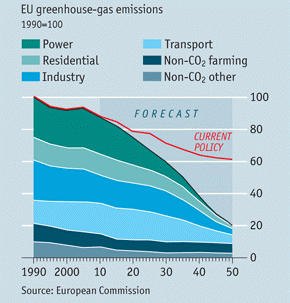There are now less than 48 hours until negotiations in Doha are scheduled to conclude, on the evening of Friday, December 7. While the President of this 18th Conference of the Parties (COP 18) to the UNFCCC remains confident that the negotiations will end on schedule, the feeling in the hallways is that talks are likely to go through the night on Friday, and into Saturday.
For the past few days, the various subsidiary bodies and working groups in the UNFCCC process have been working hard to reach agreed outcomes, or at least to draft different options, which can form the basis for final decisions to taken by the COP or its equivalent for the Kyoto Protocol, the 8th Conference of the Parties serving as the Meeting of the Parties to the Kyoto Protocol (CMP) on Friday. In this COP Report, we provide a brief overview of some of the major issues that are yet to be resolved in these negotiations.
One of the most polarizing issues being discussed in Doha is “loss and damage.” In the context of the UNFCCC, “loss and damage” is shorthand for the question of whether rich countries should compensate vulnerable communities for harm caused by climate change (or events linked to climate change). Negotiations on this topic have been some of the longest talks so far in Doha, including a meeting that reportedly ran for 26 hours. There are two options on the table, which represent stark alternatives. The first option, proposed by the G77, calls for the establishment of a new international mechanism to address this issue. While the details of such a mechanism remain undefined, it is understood that it would include a form of compensation. The second approach, supported by the US as well as Australia and other developed countries, suggests that loss and damage should be handled by the adaptation tools and bodies that already exist within the UNFCCC.
Another area in which agreement is yet to be reached is in relation to amendments to the Kyoto Protocol, to create a second commitment period. At the close of informal consultations on this issue on Wednesday night (or more accurately, early Thursday morning), there were still several key elements of the second commitment period had yet to be finalized, including:
- Whether the commitment period should run for five years, as supported by many developing countries, or eight years, as supported by the Annex I Parties who are willing to enter into new binding commitments;
- The need for higher mitigation ambition to be reflected in Quantified Emission Limitation and Reduction Obligations (QELROs), and the 2°C warming target (or the 1.5°C target promoted by some countries, particularly the Association of Small Island States);
- Whether Annex I Parties which do not take on QELROs for the second commitment period should be able to participate in the flexible mechanisms set up by the Kyoto Protocol, including the clean development mechanism (CDM); and
- Whether obligations relating to the second commitment period should be provisionally applied to ensure that they are legally binding from January 1, 2013 onwards, and how this can be achieved by the parties (for more information on provisional application see here).
While this appears to be an enormous amount of work to complete in two days, most delegates seem to be confident that an agreement will be reached.
Another work-stream which has many issued unresolved is the Ad Hoc Working Group on Long-term Cooperative Action under the Convention (AWG-LCA). This work of the AWG-LCA is meant to conclude here in Doha, by reaching an agreed outcome on the matters raised in the Bali Action Plan of 2007. At a “stocktaking” on the progress of the AWG-LCA on Wednesday afternoon, the Chairman noted that agreed text had been reached on one issue (relating to economies in transition), that a number of other issues were close to conclusion, while several issues required more time and that some talks appeared to be going “around in circles” or “were in retreat.” Issues where the parties remain sharply divided include financing, technology transfer, adaptation measures and sectoral approaches to mitigation.
Clearly there is a lot for the delegates and leaders left to decide in the next two days in Doha. Luckily, as one delegate pointed out in a late night meeting of the AWG-LCA, “a day sometimes takes more than 24 hours to finish.”




